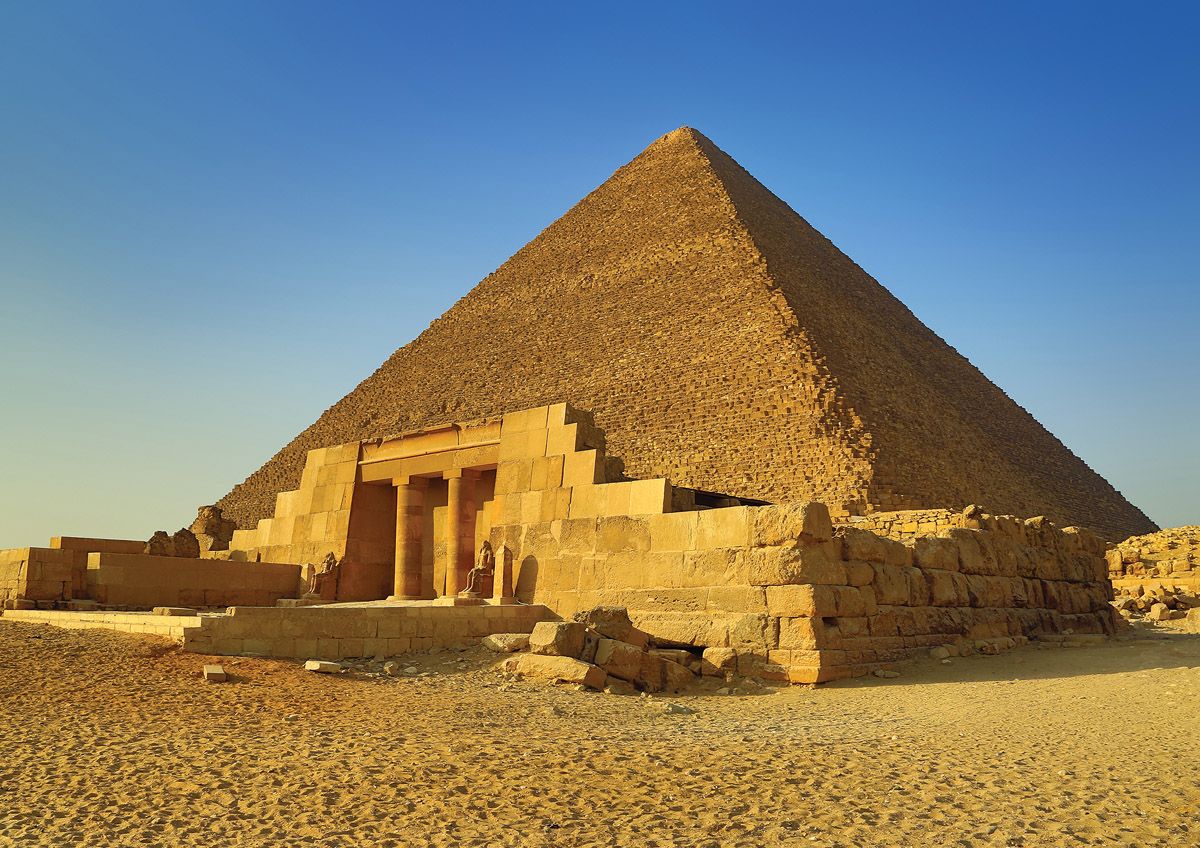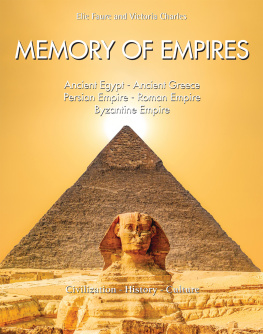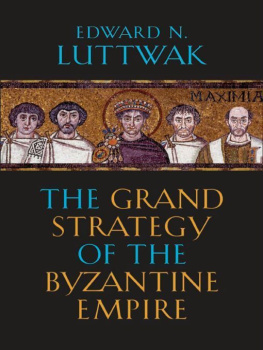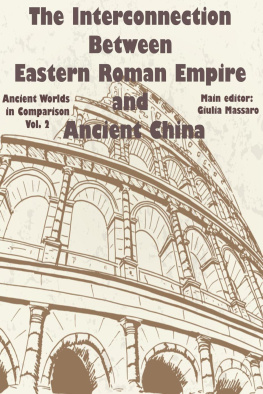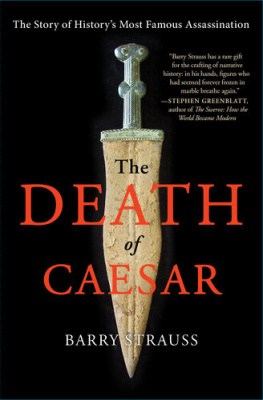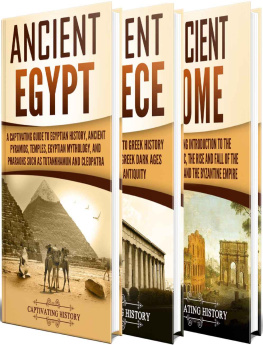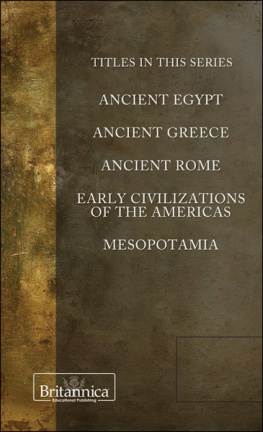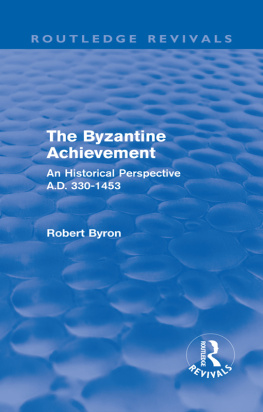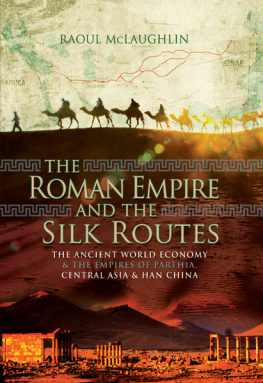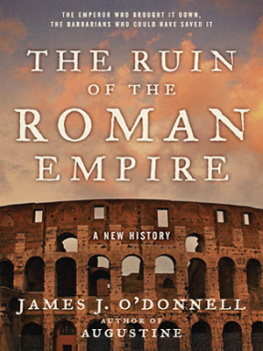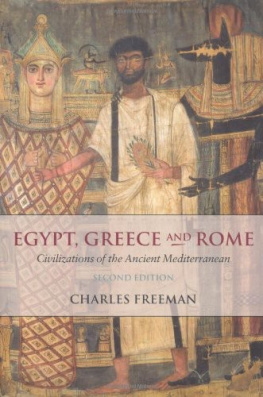Author: Elie Faure and Victoria Charles
Layout:
Baseline Co. Ltd,
Ho Chi Minh City
Vietnam
Parkstone Press International, New York, USA
Confidential Concepts, Worldwide, USA
Image-Bar www.image-bar.com
All rights reserved.
No part of this publication may be reproduced or adapted without the permission of the copyright holder, throughout the world. Unless otherwise specified, copyright on the works reproduced lies with the respective photographers. Despite intensive research, it has not always been possible to establish copyright ownership. Where this is the case, we would appreciate notification.
ISBN: 978-1-64461-817-2
Elie Faure and Victoria Charles
Memory
of
Empires

CONTENTS
ANCIENT EGYPT

Written in Greek and acient Egyptian, using three scripts (Greek, Egyptian hieroglyphs and demotic), the Rosetta Stone held the key to the decipherment of the ancient Egyptian texts.
INTRODUCTION
THE COUNTRY: ITS CHARACTERISTIC ASPECTS
The natural introduction on Egyptian Art is a study, however summary, of the physical conditions of the country. Without exaggerating the influence of this medium upon artistic productions, it is nevertheless necessary to take into account the chief peculiarities of the Nile Valley, and to show in what respects this region essentially differs from almost every other land.
Let us glance at a map of Egypt. Across the great desert regions of northeastern Africa, the Nile forms a giant oasis, exceedingly elongated, which can be divided into two principal parts: the triangular estuary, called the Delta, and the course of the stream, which stretches far away toward the interior of Africa. The Delta is known as Lower Egypt, and the river proper, as far as the First Cataract, Upper Egypt.
Egypt is situated at the point of contact of three worlds: on its northern frontier it adjoins the eastern basin of the Mediterranean; on the eastern frontier of the Delta it touches Asia; and, by the course of the river, it effects a penetration into African regions. The natural frontiers of the north, the east and the west (Libyan or Sahara Desert) have never changed, but that of the south, on the contrary, has reached farther and farther up the course of the Nile just as the power of the kings of Egypt has extended to remoter regions. The First Cataract, in the Assouan District, constitutes the southern frontier of Egypt proper toward the south. The Pharaohs of the Ancient Empire rarely went beyond it: those of the Middle Empire conquered Lower Nubia; and later, Egyptian domination extended to Upper Nubia and even to the Sudan.
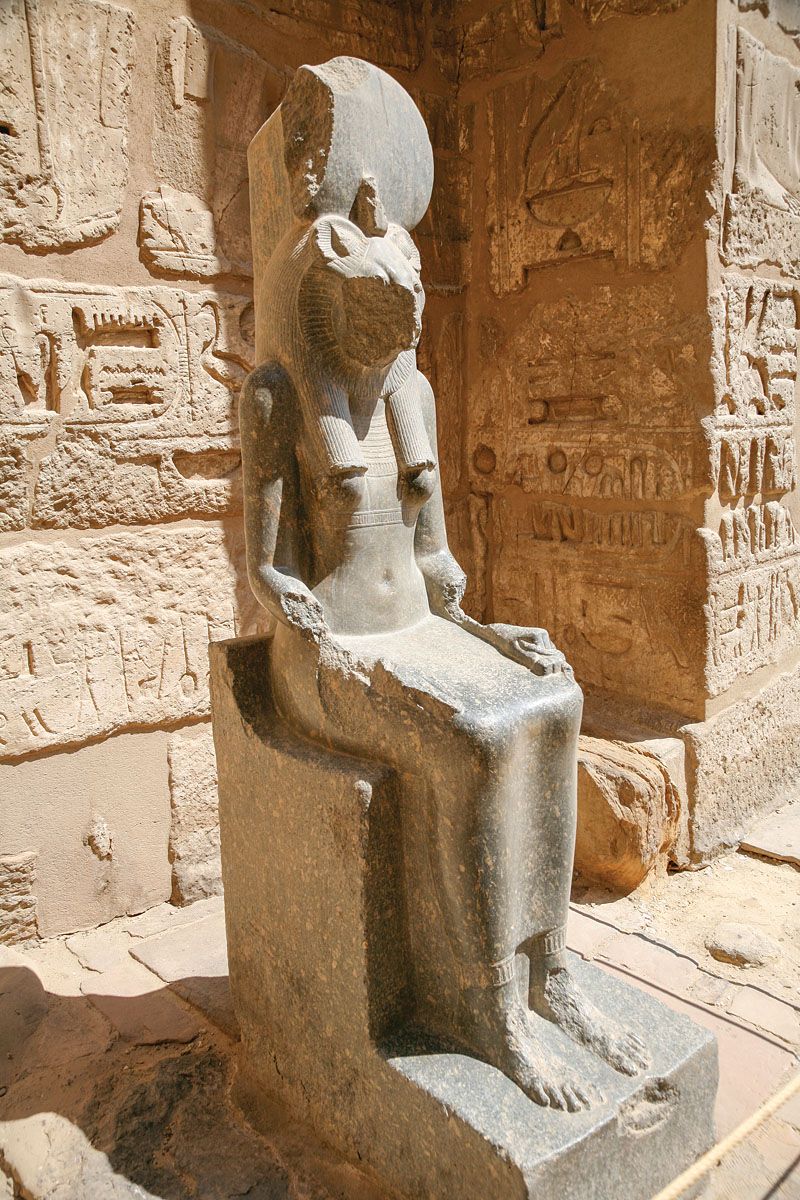
Sculpture statue of landmark Egyptian warrior goddess Sekhmet also Solar deity and protector of pharaohs monument in Temple of Medinet Habu or Ramses III in Luxor Egypt Africa
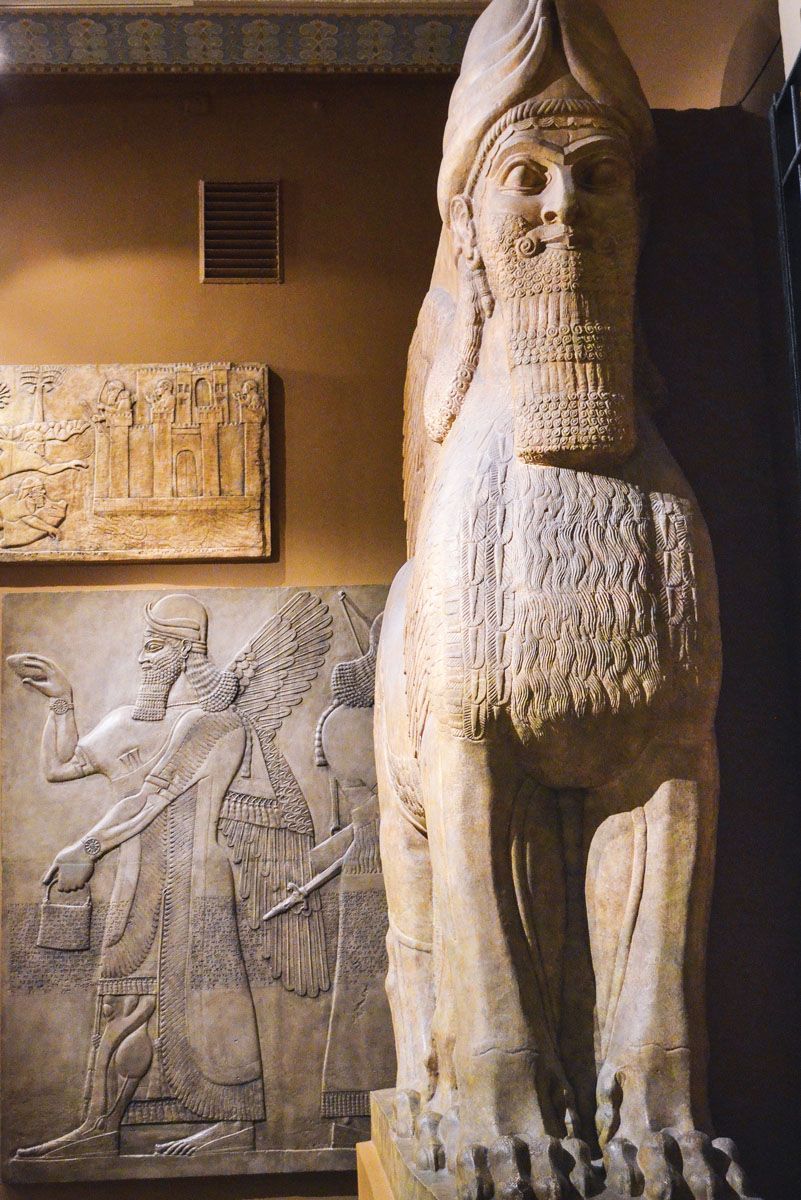
Moscow, Russia - Antique sculpture of sphinx and human murals in Egyptian room of Pushkin state museum of fine arts.
Let us first recall the brief and striking phrase by which Herodotus described Egypt as a gift of the Nile. The time of the rise and of the ebb of its waters is so governed by the courses of the sun and the moon that there is one season of the year when all the elements of the universe come to pay to this King of Rivers the tribute with which Providence has endowed them for his benefit. Then the waters increase, leave their bed and cover the whole face of Egypt in order to deposit there the fertile mud. There is no communication between village and village save by means of boats, which are as numerous as palm leaves. When at last the time comes when the waters cease to be necessary to the fertility of the soil, the docile river retreats within the banks which destiny has marked out for it, leaving the hidden treasures to be gathered. There are little copses of date palms, groups of acacias and sycomores, plots of barley or wheat, fields of beans or bersim here and there banks of sand which the slightest wind stirs up into clouds, and above all deep silence, scarcely broken by the cries of the birds or by the song of the oarsmen of a passing boat. The Nile unfolds its wandering course with the same motion amid the islets and its steep banks: village follows village at once smiling and dull beneath its canopy of leaves. Every year, from June to O ctober, the inundation drives the river from its bed: that part of the valley which is under water and on which the mud is deposited the mud with which the water is charged constitutes what might be called the real Egypt in opposition to the desert.
The Egyptians have bequeathed to us but scanty traces of their historical records. We know that from the earliest times they were wont to record important events in their history: indeed, there was even a special goddess relegated to preside over the annals of the Empire, but only a few fragments have come down to us.

Historical artifacts in Egyptian Museum in Cairo.

Nile River of landmark Philae Temple ancient Egyptian public monument for the goddess Isis in Agilkia island Egypt Africa..
A GLANCE AT HISTORY
Can one compile, at the present day, a true history of Egypt, especially of the most ancient times? Information derived from the monuments, despite the great abundance of the latter, is, after all, of a very fortuitous nature. For one ancient papyrus which has been rescued, countless millions must have perished.... It would seem that there still exists a great abundance of Egyptian documents, but they have to cover an enormous space of time. We can generally say that such and such a king carried out building operations upon such and such a temple; that he undertook a military expedition against such and such a neighboring country; that he returned with the spoils which he proudly enumerates; to which we may add a more or less lengthy catalogue of the monuments, which his contemporaries have left behind them. Our knowledge of the civilization of Egypt is much fuller, thanks to the biographical inscriptions and to the countless scenes depicted upon the temples and the tombs.
We must also allude to another important source of information, although the most difficult to use the religious texts. These appear to us, from the times of the Ancient Empire, as the written version of a long and almost invariable oral tradition. They indicate to us a state of civilization which Egypt had long since left behind when these religious texts were used. The general impression which emerges from a scrutiny of these materials is that even the Egypt of the earliest dynasties had already a long past behind it.
